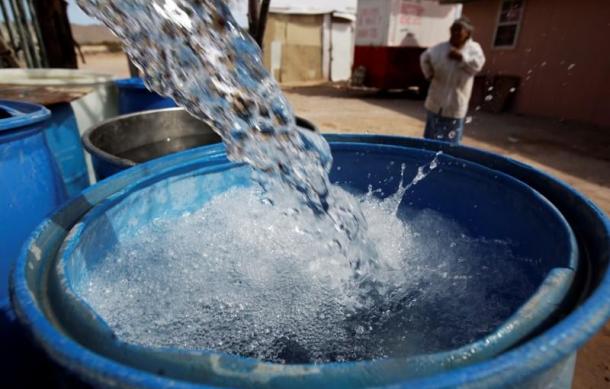
Selected villages and settlements will soon have access to clean drinking water following the signing of an agreement between the Ministry of Agriculture, Water, and Land Reform and the Environmental Investment Fund (EIF).
The agreement provides for the construction of mini-desalination plants in ten regions.
In terms of the agreement, the Ministry of Agriculture, Water, and Land Reform will provide N$15 million to the EIF to develop mini-desalination plants in rural areas.
Last year, the Ministry and EIF constructed three mini-desalination plants at Spitzkoppe and surrounding farms at a cost of N$1.2 million.
"We want it replicated. If we start from the south, the salt block area, that is, the border between the ||Kharas and Hardap and the area of Karasburg and Blouves, in those areas the water is not fit for human consumption. This is probably a very, for lack of a better word, a revolutionary intervention that will be able to bring much sought-after solutions to water problems," said Dr. Elijah Ngurare, the Director of Water Supply and Sanitation Co-ordination.
Ndiyakupi Nghitumata, the Executive Director of the Ministry of Agriculture, Water, and Land Reform, said, "Our Minister has given us marching orders this year when he addressed us as staff members, and this project is one of those projects that he wants to see already being demonstrated even before the end of the financial year."
Currently, private companies would charge the government up to $16 million to construct a mini-plant.
The amount is considered exorbitant, hence the need for this agreement, according to Karl Aribeb, the Chief Operations Officer at EIF. "If we collaborate with entities like EIF and maybe others, there are many others who have the flexibility. Maybe we can take the risk, you know, de-risk the research part of some of the technologies, and then show to the government that it can be done differently."
"We employ affordable and appropriate technologies for our communities so that we improve their livelihoods. We also contribute toward rural development. This agreement also signifies the challenge for us that we need to step up and support the Ministry of Agriculture," added Benedict Libanda, the EIF CEO.
The Environmental Investment Fund has so far drilled close to 200 boreholes in rural areas since 2019.





